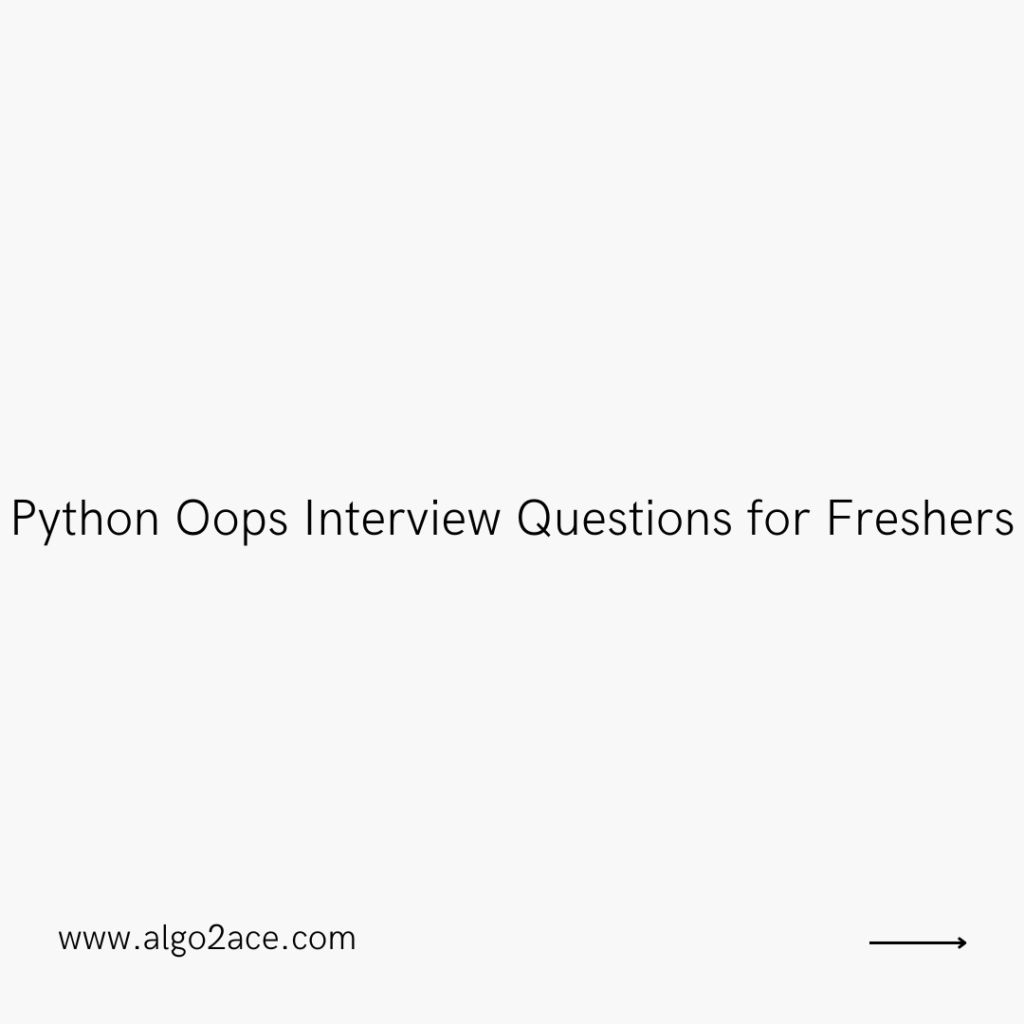Introduction:
Learn the most commonly asked Python interview questions and answers to excel in your job search. Discover why Python’s simplicity, versatility, and powerful libraries make it a sought-after skill in domains such as AI, ML, and web development. With high demand for Python developers, unlock amazing job opportunities and benefits.

In this article, we are going to cover all the interview asked on Python oops interview questions.
1. What is Object-Oriented Programming?
Object-Oriented Programming (OOP) is a programming paradigm that organizes code into objects, which represent real-world entities. It emphasizes encapsulation, inheritance, and polymorphism to provide modularity, reusability, and maintainability in software development.
2. What are the key principles of OOP? The key principles of OOP are:
Encapsulation: Enclosing data and methods within a class, hiding the internal details from outside.
Inheritance: Deriving new classes from existing classes, inheriting their properties and behaviors.
Polymorphism: The ability of objects to take on different forms or have multiple behaviors based on their context.
Abstraction: Simplifying complex systems by breaking them into smaller, more manageable objects.
3. What is a class in Python?
A class in Python is a blueprint or template that defines the characteristics (attributes) and behaviors (methods) of objects. It acts as a user-defined data type.
4. What is an object in Python?
An object is an instance of a class. It represents a specific occurrence of the class, having its own unique state and behavior.
5. What is the difference between a class and an object?
A class is a blueprint or definition, while an object is an instance of that class. In other words, a class describes the attributes and behaviors that objects of that class can have.
6. What is the significance of “self” in Python class methods?
In Python, “self” refers to the instance of the class. It is used to access the attributes and methods of the class within its own scope.
7. What is method overriding in Python?
Method overriding is a concept in which a subclass provides a different implementation of a method that is already defined in its superclass. It allows the subclass to provide its specific behavior while using the same method name.
8. What is method overloading in Python?
Python does not support method overloading in the same way as some other languages do. However, you can achieve similar behavior by using default argument values or using variable-length arguments (*args, **kwargs).
9. What is the difference between instance variables and class variables?
Instance variables are specific to each instance (object) of a class. They hold unique values for each object. Class variables, on the other hand, are shared by all instances of a class. They have the same value across all objects of that class.
10. How does inheritance work in Python?
Inheritance is a mechanism in which a class can inherit properties and methods from another class. The class that inherits is called a subclass or derived class, and the class being inherited from is called a superclass or base class. Python supports single inheritance, multiple inheritance, and multilevel inheritance.
These are just a few examples of Python OOPs interview questions. It’s always a good idea to study the fundamental concepts of object-oriented programming and practice coding examples to become comfortable with OOP in Python.

Pingback: Python Oops Interview Questions for 2 year - algo2ace.com